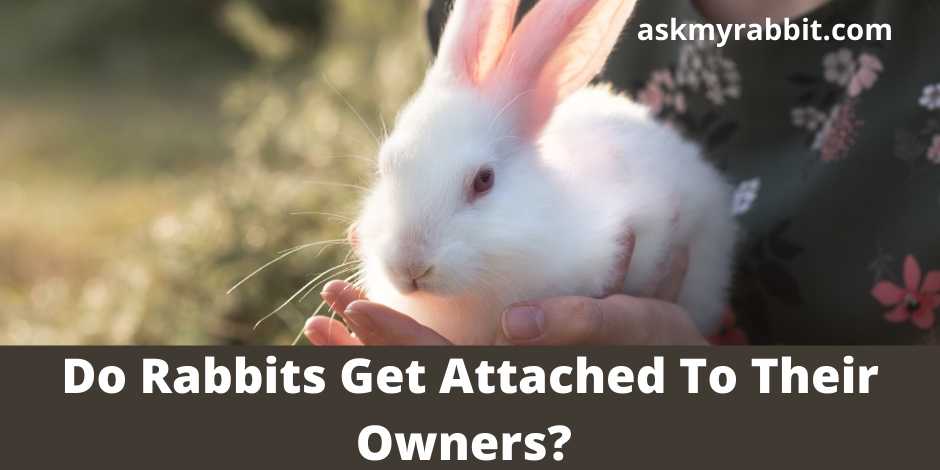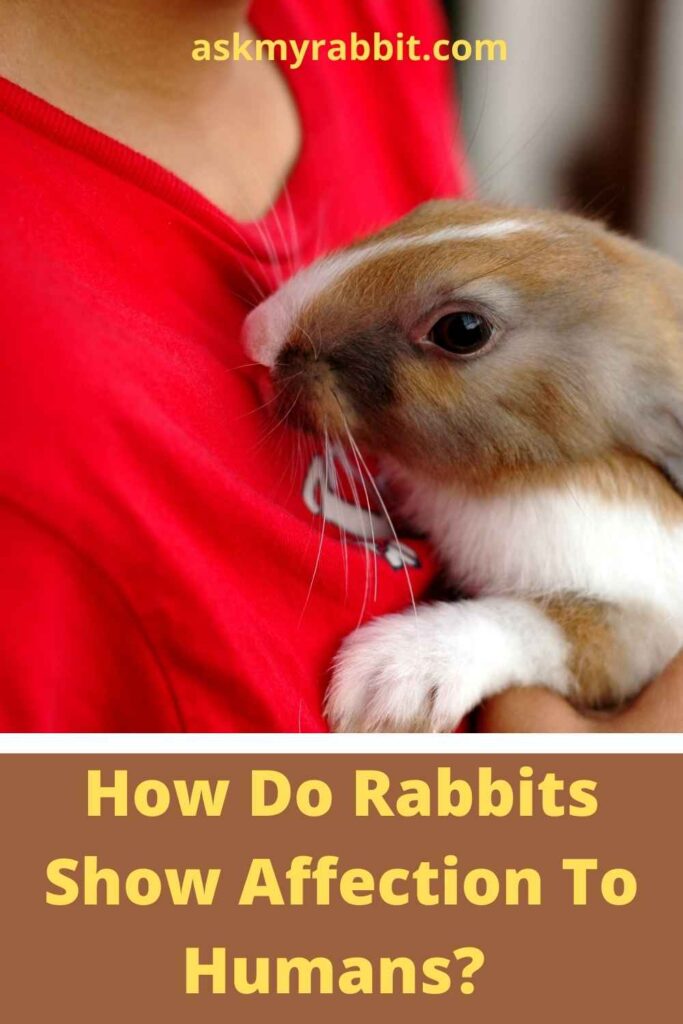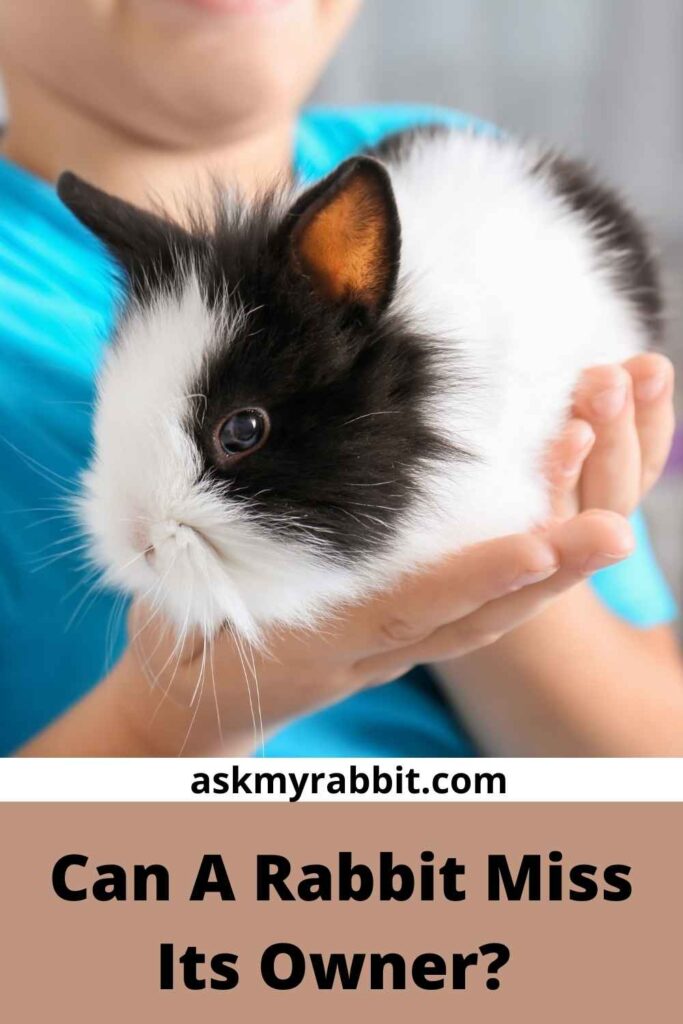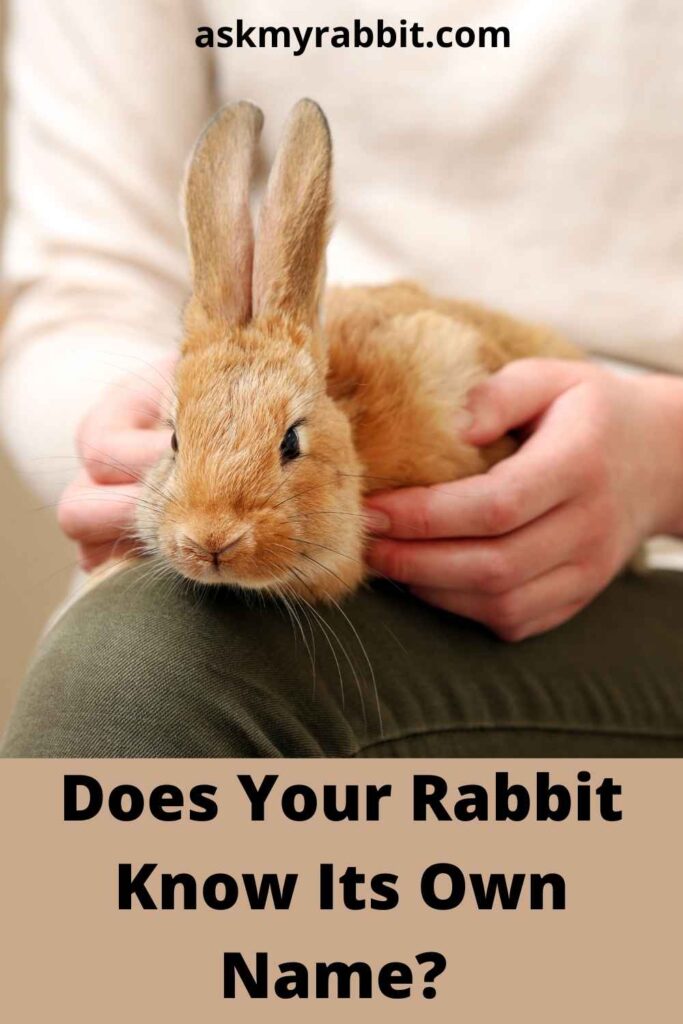Any bunny owner who interacts with his pet on a daily basis will tell you that bunnies come to know their owners quite well. They identify them by their voice and appearance. When summoned, bunnies may even follow their owners from room to room and hop up on their laps.
So, you may be thinking if rabbits can get attached to their owners?
Yes, rabbits can get attached to their owners. Bunnies can develop an attachment to their owners much the same way many pets do. The sociability and loving tendencies of bunnies make them a great companion to humans.
As an animal that forms strong social bonds, a rabbit will grow to recognize its owner through repeated interactions. If these interactions are positive and the rabbit’s affections are returned, the bond between the owner and pet will grow and strengthen.
If you want to know more about the way bunnies think and interact with their owners, keep reading!

Do Rabbits Love Their Owners?
Yes, rabbits love their owners. On the whole, rabbits are quite affectionate and loving. However, every rabbit is unique. Some bunnies are inherently pleasant, while others are more reserved.
Your rabbit, like some shy individuals, may be able to emerge out of its shell via social interaction. The more time your rabbit spends with you and other people, the more likely they are to develop a preference for human connection.
You may also teach your rabbit to be more friendly. This will result in them becoming more loving affectionate towards their owners.
Do Rabbits Have Feelings For Their Owners?
Yes, rabbits do have feelings for their owners. If given the chance, rabbits may be incredibly loving pets. They like spending time with their human friends and are quite gregarious.
Once you’ve earned a rabbit’s trust, they’ll begin to show you how much they care in their own unique bunny ways. Rabbits are frequently hesitant and require a long time to trust and warm up to new individuals. They may appear to be aloof or frightened creatures by nature.
You’ll may see your rabbit choosing to stay with you and become more loving if you give them time and train them to trust you.
How Do Rabbits Show Affection To Humans?

Rabbits show affection to their human owners in the following ways:
1. Grooming
Rabbits groom you as a method of expressing their love. Rabbits engage in social grooming when they live in couples or groups. They’ll lick each other and perhaps give each other a few of loving nips to assist the other bun.
When your rabbit begins to lick you or your clothing, it signifies they consider you to be a member of their rabbit family. They believe in you and love you enough to be concerned about your hygiene and well-being.
Reciprocal grooming is also understood by certain rabbits. Your rabbit will reward you by licking your hand or leg if you take the time to stroke them and give them a pleasant massage. Your rabbit may also give you a couple of mild nips.
2. Circling Feet
Rabbits will circle your feet in circles to express their delight. They could even try to trip you by weaving between your legs in figure eights. To show how delighted they are, they will occasionally make a quiet, charming oinking sound.
This behaviour is most commonly observed when a rabbit is displaying enthusiasm over food. For example, they may display this behavior when they know they’re going to get a tasty treat or when it’s time for breakfast.
This behaviour has also been observed when a rabbit was just delighted to see it’s owner. When you get home at the end of the day, your bunny may sometimes welcome you by running circles around your feet.
3. Petting
While some rabbits are okay with being petted by anybody, others will not sit down next to you and demand attention unless you have earned their confidence.
If a rabbit approaches you and nudges you or lowers their head down to be petted, it’s an indication that they adore you and like your interactions with them.
When a rabbit comes up to you and asks to be petted whenever they want, it’s a clear indicator that he likes and trusts you. They adore spending time with you and receiving your undivided attention. It also demonstrates that they aren’t terrified of being picked up every time you engage.
4. Laying Next To You
When a rabbit comes up to you and flops or sprawls on the ground next to you, it implies they have a lot of faith in you. When a rabbit sprawls out on the ground with its feet no longer underneath them, they are in an extremely vulnerable position.
Rabbits that are strewn about are unable to flee quickly if danger approaches because they must first stand up. If a rabbit approaches you and lies down on its side, it is expressing its faith in you.
5. Binky
A binky is a global symbol of bunny joy. This is when a rabbit leaps into the air and twists around in a weird way. A binky is usually accompanied by some fast zooming as your rabbit lets off all of their happy, enthusiastic energy.
When rabbits are let out of their enclosure for a period of time to exercise, they frequently binky and begin whizzing around. A rabbit may occasionally binky and run toward you because they are overjoyed to see you.
6. Sitting On Lap
Rabbits do not normally sit on people’s laps. They will frequently feel confined and wish to flee. However, if a rabbit truly likes and trusts you, he or she may be prepared to crawl into your lap on their own.
Even better, a rabbit may sit on your lap as you pet them and then begin grooming you as a way of showing their gratitude. These are incredibly magical moments that demonstrate how loving pet bunnies can be.
7. Purring
When rabbits are satisfied, they grind their teeth together, which is not the same process as a cat’s purr. This produces a faint clicking sound and causes the rabbit’s head to quiver slightly. This is the way rabbits purr.
Rabbits purr because they are completely comfortable and satisfied. This is a common rabbit habit when they are petted.
When you give them a calming full-body massage or pets on their forehead and behind their ears, you’ll notice it the most. This is an indication that your bunny is relaxed and satisfied in your arms.
Can A Rabbit Miss Its Owner?

Yes, a rabbit may miss it’s owner. Routine and repetition are pleasurable to rabbits, as they are to other animals. This implies that a rabbit can remember things. This might also explain why your bunny recognises specific persons and circumstances.
Rabbits remember crucial knowledge for extended periods of time. Your rabbit will recall anything that has emotional meaning for her. This covers both rabbit siblings and their human owners.
Emotional resonance may also refer to a feeling of comfort and safety. Rabbits are guided by their instinct for survival. If anything puts your pet’s life in jeopardy, she’ll remember it and avoid it in the future.
Also, rabbits can recall sources of pleasure. This is why your pet rabbit like regularity and repetition. Also, according to research, rabbits can distinguish people apart.
What isn’t clear is how the bunnies distinguish between us. It’s most likely connected to the sense of smell. Rabbits, on the other hand, can perceive human emotions through our faces.
Your pet will notice if you are smiling. Furthermore, she will reply appropriately. Your rabbit will recognise that this is a great time to request grooming or rewards. Rabbits are experts at deception.
Your facial expressions will be committed to memory once a rabbit learns their meaning. If a rabbit is rehomed, the new owners may be bewildered and disoriented for a while.
A rehomed rabbit will miss its previous owner because rabbits appreciate routine. It will be reassuring to see the expressions and reactions of a prior human. It might be tiring to be pushed to acquire new emotional reactions.
Furthermore, trust does not come naturally to a rabbit. Your cat will adore you once she realises she can trust you. If you’ve won a rabbit’s affection, pat yourself on the back.
Does Your Rabbit Know Its Own Name?

You probably spent a lot of time and effort deciding on a name for your rabbit. Is your fluffy pal even aware of his or her own name?
Yes, your rabbit does know it’s own name. Rabbits not only recognise and respond to their own name, but they can also reply to it when called. Of course, this will take time and effort, but the end result will be well worth it.
You’ll want to take your rabbit out of their enclosure to begin the training. Sit down with them on the floor as near to ground level as possible. Maintain some gap between you and the rabbit.
The gap doesn’t have to be much. The idea is to entice them to approach you. Start screaming out their name now.
You should have a goodie in your hand to entice the rabbit to hop or stroll over. Reward your bunny with a treat if they follow your instructions. Don’t be discouraged if your rabbit doesn’t respond when you call their name the first time.
This is a talent that will take time and effort for you and your bunny to master. Your rabbit can astound you if you’re prepared to put in the effort.
Frequently Asked Questions
Do Bunnies Like When You Talk To Them?
Yes, bunnies like it when you talk to them. This is because of their intrinsic social nature and great underlying desire to feel protected. When rabbits learn to trust the sound of their caretaker’s voice, they frequently equate it with love and safety. This leads them to form strong bonds with their owners.
How Long Can A Rabbit Remember?
The short-term memory of a rabbit is roughly four minutes. However, they remember important incidents for a long time.
Do Rabbits Know When You’re Sad?
Rabbits may feel melancholy in their owners by detecting changes in their body language and tone. They frequently respond to emotional and physical stimuli. Also, they frequently reflect their owners’ attitudes and feelings.
Final Words
Rabbits are particularly affectionate creatures. As a result, they may form strong bonds with their owners. Rabbits can identify an owner’s face, voice, and scent due to their highly developed senses.
Some rabbits are more loving than others. We advocate spending continuous time with your rabbit to get them acclimated to being handled and snuggled.
When they behave nicely, reward them with sweets. Even a timid bunny might grow to be more affectionate over time.
If you have any more doubts and queries regarding your pet bunny and his relationship with you, drop it in the comment section below. We will answer them soon!





